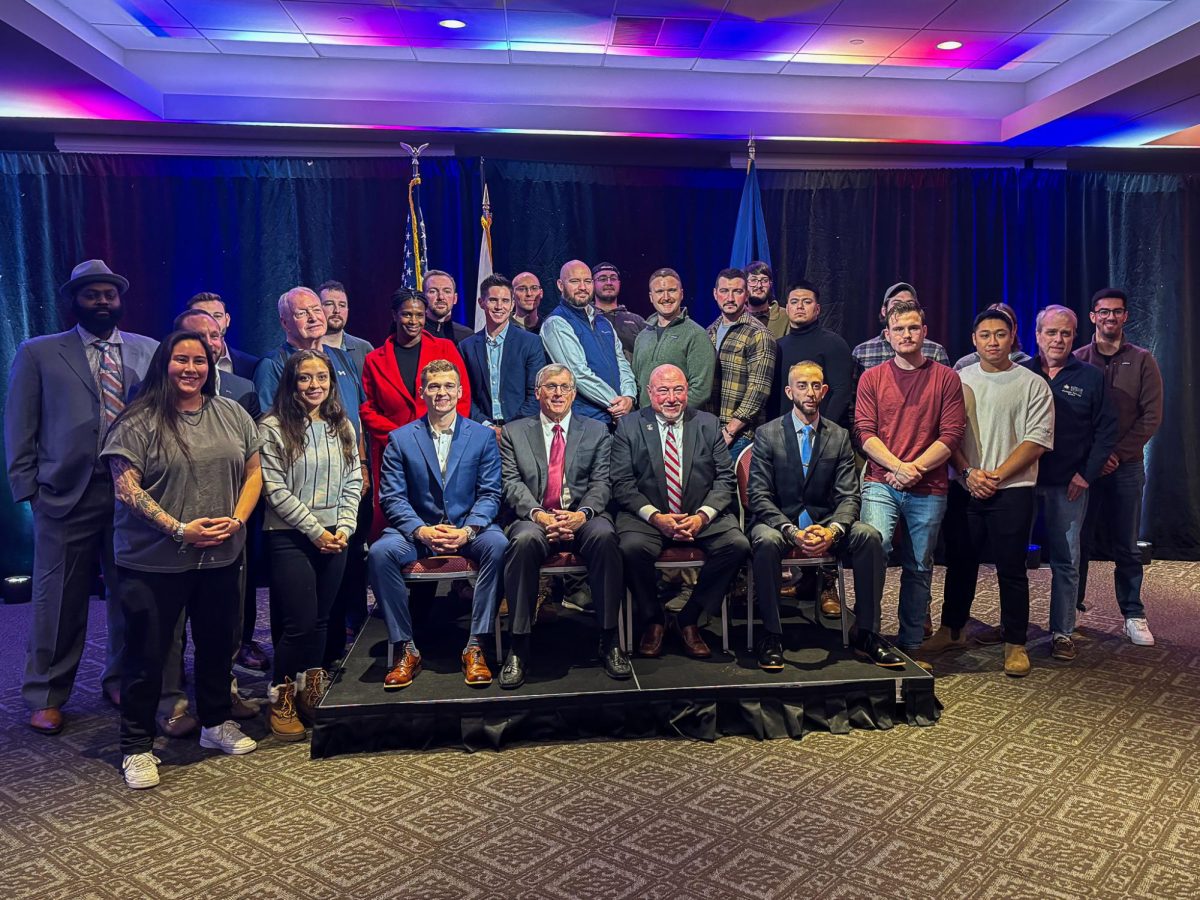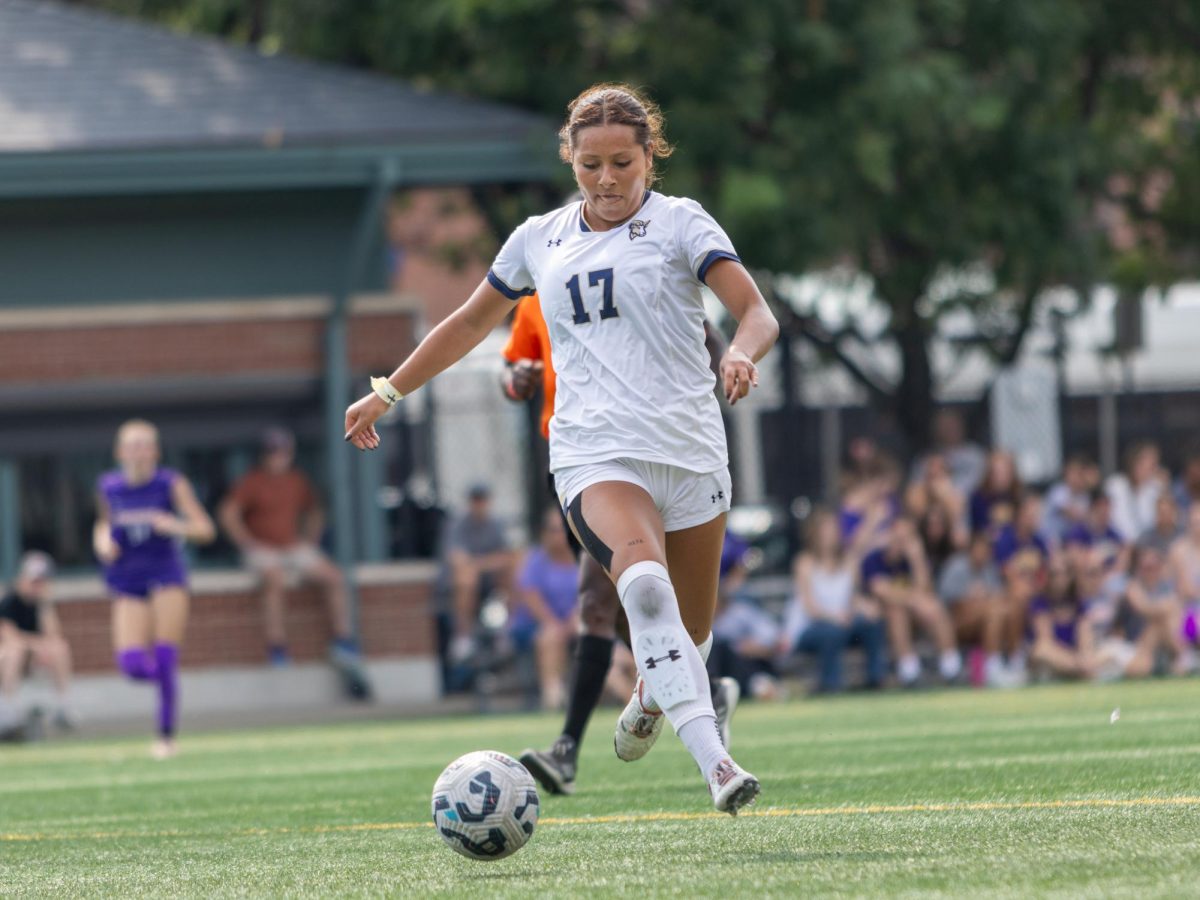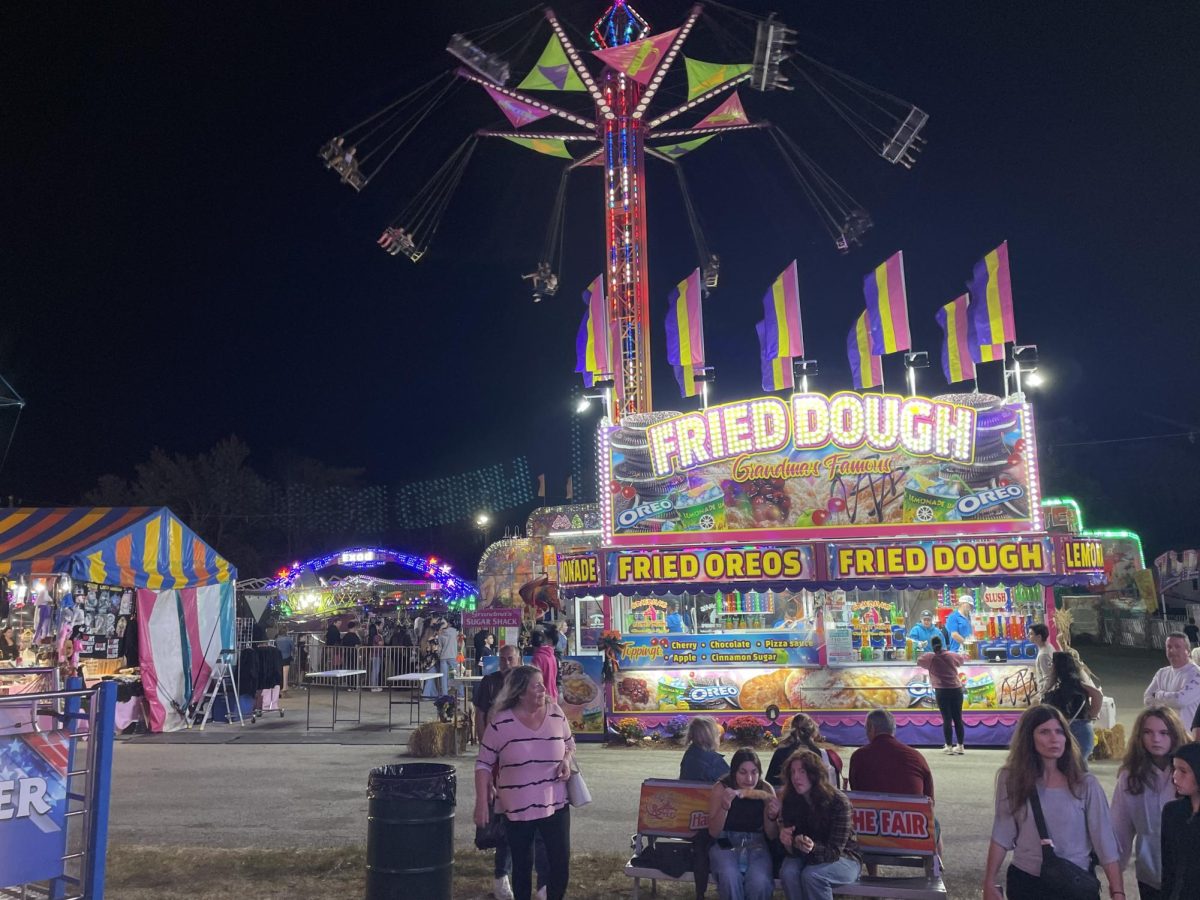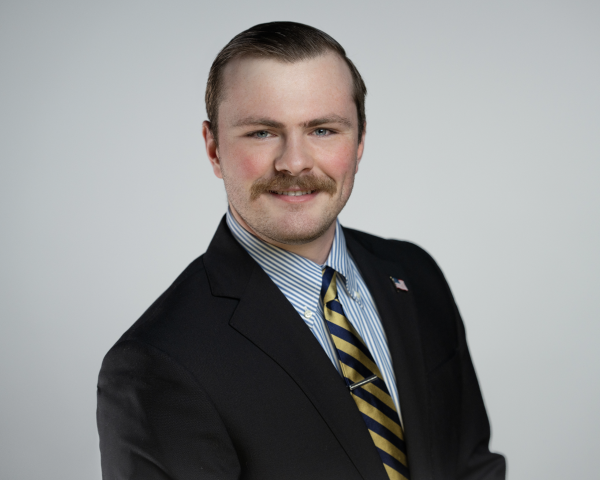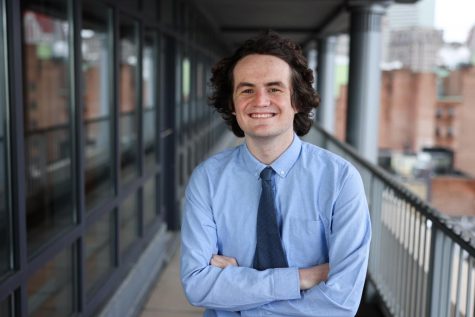Former President Woodrow Wilson proclaimed Armistice Day on Nov. 11, 1919, just one year after the end of World War I. Now, over one hundred years later, Americans still honor those who served in the armed forces on that same day: Veterans Day.
Suffolk University hosted the eighth annual Veterans Day Luncheon Nov. 9 to honor the service members of the university.
The luncheon was hosted by the Suffolk Veterans Services in the Keches Room of Sargent Hall and was open to all members of the university community. Alex Paterson, coordinator of Veterans Services, opened the event by introducing the Suffolk Ramifications and other members of various Suffolk performing arts groups, who sang the National Anthem.
After the anthem, a toast was given to honor service members listed as prisoners of war and those who have gone missing in action by Suffolk student David Goss, president of the Undergraduate Student Veteran Organization.
“The tradition of setting a separate table in honor of our prisoners of war and missing comrades has been in place since the end of the Vietnam War. The manner in which this table is decorated is full of special symbols to help us remember our brothers and sisters in arms,” Goss said.
Alex Grenier, Vice President of the SVO, introduced Patrick F. Jordan III, a United States Army veteran, chief operating officer of Dartmouth-Hitchcock Health and Suffolk trustee, to speak about his time in the service.
“I believe the Armed Forces are the greatest leadership programs in the world…Even more than that great leadership training were the experiences that you had at a young age of taking responsibility for the mission and taking responsibility for your soldiers,” Jordan said. “If you take care of the people that work for you, your organization will be successful.”
Closing out the ceremony was Robert C. Lamb Jr., an Army veteran and chairman of the Suffolk Board of Trustees. Lamb referenced a statement sent out to the Suffolk community at the conclusion of the ceremony.
“Suffolk is fortunate to have more than 80 veterans currently enrolled as students, and many more among our faculty and staff,” Suffolk President Marisa Kelly said in the email to the university. “They bring with them their ethos of service, as well as a broad range of experiences and perspectives that greatly enrich our University community.”
Reflecting on the importance of observing Veterans Day, Goss offered his thoughts.
“Having the day to sit, recollect and remember the sacrifice and if you lost, what you lost and to the extent of what you lost, but also what you gained,” Goss said.
Goss believes Suffolk is incredibly supportive of the Veteran community, but said there is an additional step the university should take.
“What I would like to see is a permanent structure for our military flags,” Goss said. “We flew branch flags for every branch of the military to celebrate Veterans Day, but ideally I would like to see those flags up year round.”
Suffolk’s military community is made up of people from all walks of life. Many students claim that their time spent serving in the U.S. military has had an incredibly positive impact on their lives, and has helped to mold them into the adults that they are today.
“I failed out of college when I was 18 and was lacking a lot of the skills and traits needed to be successful. Discipline, work ethic and tenacity to name a few. For me, it was kind of a necessity… The service was an opportunity for me to get those missing characteristics for me to become successful,” said Grenier.
“I was a party animal [before joining] and I needed some direction. Rather than go to college and use my mom and dad’s money, I figured I’d discipline myself and serve my country in the process,” said Suffolk student John Covone. “Veterans Day is especially important to me, because 22 veterans a day kill themselves. Veterans are always asking each other how we are doing, but never once have I heard a student ask a veteran how we are doing. It is important for us to raise awareness.”
To Jordan, Veterans Day offers the space to begin ongoing conversations and for veterans to share their stories.
“Such a great population has never served,” Jordan said. “They need to hear the stories of these veterans, and they need to appreciate and celebrate these veterans.”


